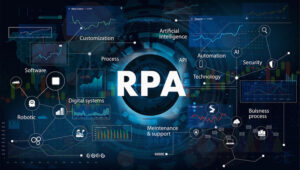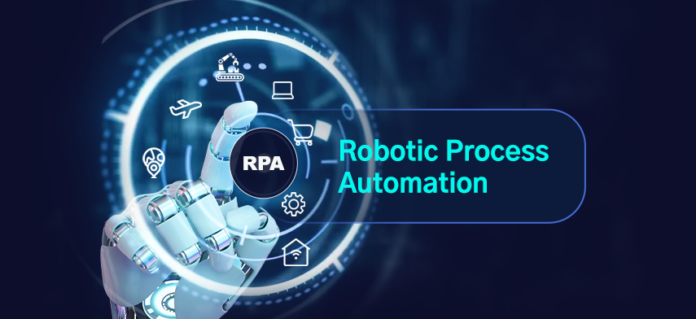What is robotic process automation?
Software technology known as robotic process automation (RPA) makes it simple to create, implement, and oversee software robots that mimic human behaviour when dealing with software and digital systems. Software robots have the same abilities as humans, including the ability to comprehend what’s displayed on a computer, execute precise keystrokes, navigate through systems, recognize and retrieve data, and carry out a variety of predetermined tasks. However, software robots can do it more quickly and reliably than humans, and they don’t need to take breaks for coffee or stand up to stretch.
What are the business benefits of RPA?
Workflows are streamlined via robotic process automation, which increases an organization’s profitability, flexibility, and responsiveness. Removing tedious chores from employees’ workdays also boosts their engagement, productivity, and contentment.
RPA may be quickly and non-intrusively used to speed up the digital transformation process. Furthermore, it is perfect for automating processes involving legacy systems devoid of virtual desktop infrastructures (VDIs), database access, or APIs.
Why is RPA transformative?
The landscape of work is changing due to RPA technology.
Repetitive and low-value tasks, such as entering into programs and systems, transferring files and folders, extracting, copying, and inserting data, filling out forms, and finishing standard analysis and reports, are performed by software robots rather than humans. Even more sophisticated robots are capable of cognitive tasks like word interpretation, dialogue and chat comprehension, unstructured data understanding, and applying sophisticated machine learning models to complex decision-making.
Robots handle repetitive, high-volume jobs like these, freeing up humans to concentrate on their strongest skills and areas of enjoyment—innovation, teamwork, creation, and customer interaction. Businesses benefit as well: they become more resilient, productive, and efficient. It makes sense why RPA is altering the history of employment.
Where can RPA be used?
RPA is currently enabling new efficiencies and relieving workers of tedious tasks in a wide range of sectors and procedures. Financial services, healthcare, manufacturing, the public sector, retail, and many more businesses have all used RPA in a variety of domains, including IT, operations, finance, compliance, and legal. And that’s only the beginning.
RPA’s broad applicability is why it has become so popular. Automation makes perfect sense for almost every high-volume, repeatable, business-rules-driven activity, and it’s becoming more and more common for cognitive operations that call for higher-order AI abilities.
What features and capabilities are important in RPA technology?
You need technology that can do far more than just automate a single process if you want to develop and oversee an RPA program for your entire company. To become a fully automated enterprise™, you need a platform that can assist you in developing and overseeing a new enterprise-wide capability. Your RPA system should be able to assist you in every step of the process, from identifying excellent automation opportunities everywhere to swiftly creating high-performing robots and overseeing hundreds of automated workflows.
Why is RPA the fastest-growing enterprise software in the world?
The popularity of RPA has been increasing globally, which is not surprising given its demonstrable value and relative simplicity of installation when compared to other enterprise technologies.
- Numerous diverse sectors can greatly benefit from RPA’s innovative and potent approaches to solving their unique operational problems.
- Functional area leaders in finance, customer service, marketing, human resources, and other domains discover that RPA enhances numerous processes, resulting in increased capacity, quicker throughput, and reduced errors for critical operations.
- From the standpoint of a CFO, compared to other enterprise technology, investing in RPA technology offers a quick return on investment and requires fewer upfront costs.
- IT managers discover that RPA may be put into practice with minimal difficulty. RPA has also become a critical enabler for digital transformation since software robots can readily access and operate within traditional systems. Furthermore, scalable, enterprise-ready platforms are provided by contemporary RPA technology.
- Workers discover that integrating robotic assistants into their daily tasks is simple and that RPA’s low-code methodology enables them to become citizen developers capable of creating basic automations on their own.






